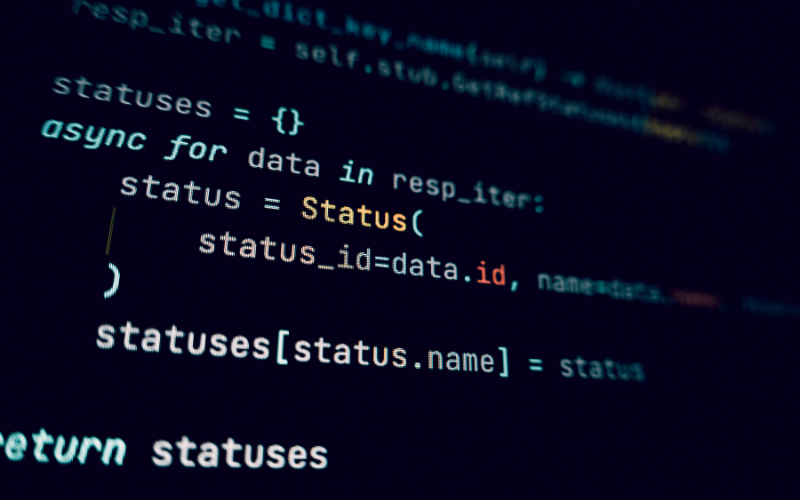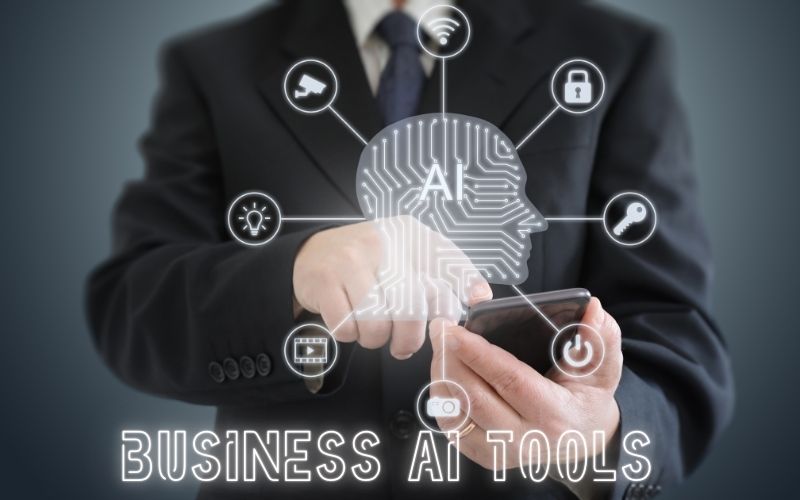The world of work is evolving rapidly, with technological advancements paving the way for new and innovative ways of connecting employers and job seekers. Among these advancements, artificial intelligence (AI) has emerged as a powerful tool in the realm of remote job platforms. By leveraging AI algorithms, these platforms are revolutionizing the way people search and apply for jobs, opening up new horizons for both employers and candidates.
One of the key advantages of AI-driven remote job platforms is their ability to streamline the recruitment process. Traditional job boards often rely on manual screening and keyword matching, making it a time-consuming task for both employers and job seekers. With AI, however, the process becomes much more efficient and accurate. AI algorithms can analyze vast amounts of data, such as resumes, job descriptions, and candidates’ preferences, to identify the best matches. This saves time and ensures that candidates are presented with job opportunities that align with their skills and aspirations.

Table of Contents
ToggleAdvancements in AI technology driving the rise of remote job platforms
AI-driven remote job platforms offer enhanced personalization features, allowing job seekers to receive tailored job recommendations based on their profiles and preferences. These platforms use machine learning to analyze user behavior and provide relevant suggestions, making the job search experience more efficient and enjoyable. Job seekers can explore new opportunities that they might not have discovered otherwise, expanding their horizons and increasing their chances of finding a fulfilling remote job.
For employers, AI algorithms play a crucial role in identifying the most suitable candidates for their vacant positions. By analyzing a candidate’s qualifications, experience, and skills, AI algorithms can match them with the job requirements, ensuring a more accurate selection process. This not only saves time for employers but also increases the likelihood of finding the right candidate for the job. Additionally, AI-driven platforms often provide tools for assessing a candidate’s soft skills, such as communication or problem-solving abilities, further enhancing the hiring process.
Despite the numerous benefits, AI-driven remote job platforms also present some challenges and limitations. One concern is the potential for bias in the algorithms used for candidate selection. AI algorithms rely on historical data to make predictions and decisions, and if this data is biased, it can perpetuate existing inequalities in the job market. Therefore, it is essential for platform developers to continually monitor and update their algorithms to ensure fairness and eliminate any unintended biases.

Benefits of AI-Driven Remote Job Platforms for Job Seekers
In today’s increasingly digital world, the way people seek employment has changed dramatically. With the advent of AI-driven remote job platforms, job seekers now have access to a wealth of opportunities that were once limited by geographic constraints. These platforms utilize advanced algorithms and artificial intelligence technology to match job seekers with remote positions that suit their skills and preferences. This innovative approach has numerous benefits for job seekers, making it easier than ever to find rewarding remote work.
One of the key advantages of AI-driven remote job platforms is the ability to increase the efficiency and effectiveness of the job search process. By using AI algorithms, these platforms can analyze vast amounts of data and quickly match job seekers with positions that align with their qualifications. This saves job seekers valuable time and effort that would otherwise be spent sifting through countless job postings.
Additionally, AI-driven remote job platforms can provide a more personalized experience for job seekers. Through machine learning, these platforms can learn about a job seeker’s preferences, skills, and past experiences to recommend positions that are well-suited to their individual needs. This level of customization greatly enhances the chances of finding a job that is not only remote but also aligns with the job seeker’s career goals and aspirations.
Another significant benefit of AI-driven remote job platforms is the access they provide to a broader range of job opportunities. Traditional job searching methods often limit job seekers to positions within their immediate vicinity. However, with remote job platforms powered by AI, job seekers can explore opportunities not only within their local area but also on a national or even global scale. This opens up a world of possibilities for individuals who may be seeking specific types of roles or those who are looking to enter a particular industry.
Furthermore, AI-driven remote job platforms can play a crucial role in reducing bias and increasing diversity in the job market. By utilizing algorithms that focus on matching job seekers with positions based on skills, qualifications, and experience, these platforms help to level the playing field and remove the potential for human biases to influence the hiring process. This can lead to greater opportunities for job seekers from underrepresented groups, fostering a more inclusive and diverse remote workforce.

The Role of AI Algorithms in Matching Employers and Candidates on Remote Job Platforms
As remote job platforms continue to gain popularity, AI algorithms play a crucial role in efficiently matching employers with suitable candidates. These algorithms leverage the power of artificial intelligence to analyze a variety of factors and make accurate recommendations. By incorporating advanced data analytics and machine learning, they ensure that both employers and job seekers find the perfect match.
One of the key advantages of AI-driven remote job platforms is their ability to evaluate job descriptions and candidate profiles in a highly efficient manner. AI algorithms can quickly scan through large volumes of data, extracting valuable information such as required skills, experience level, and specific job requirements. This enables the algorithms to make accurate comparisons and identify the candidates who possess the most relevant qualifications.
Furthermore, AI algorithms can also analyze the behavior and preferences of employers and candidates on remote job platforms. By monitoring the actions and interactions of these users, the algorithms can gain insights into their specific needs and preferences. This information allows the algorithms to make more tailored and personalized recommendations, increasing the likelihood of successful matches.
On the candidate side, AI algorithms consider factors such as previous job experience, education, skills, and industry-specific knowledge. By taking into account these various dimensions, the algorithms can accurately evaluate a candidate’s suitability for a particular job. Moreover, AI algorithms can also consider additional factors such as preferred work schedule, location, and salary expectations, ensuring that the recommended job opportunities align with the candidate’s preferences and requirements.
By employing AI algorithms, remote job platforms can significantly reduce the time and effort required for both employers and candidates to find the right match. Traditional methods of manual screening and sorting can be time-consuming and inefficient. However, AI algorithms can automate these processes, ensuring that the most relevant and suitable matches are presented to employers and candidates alike.
Despite their many advantages, it is important to acknowledge the potential challenges and limitations of AI-driven remote job platforms. Bias in data and algorithms is a significant concern as it can lead to unfair hiring practices. To address this, remote job platforms need to incorporate ethical considerations and regularly audit their algorithms to ensure fairness and transparency.
Exploring the Potential Challenges and Limitations of AI-Driven Remote Job Platforms
AI-driven remote job platforms have revolutionized the way employers connect with job seekers, offering a myriad of benefits such as increased accessibility, streamlined hiring processes, and expanded opportunities for remote work. However, it is essential to recognize that these platforms also come with their fair share of challenges and limitations. By understanding these potential drawbacks, we can strive to address them and make AI-driven remote job platforms even more effective in the future.
One of the primary challenges of AI-driven remote job platforms lies in their reliance on algorithms and machine learning models. While these technologies have proven to be highly efficient in matching job seekers with suitable roles, they are not flawless. AI algorithms may inadvertently perpetuate biases, as they rely heavily on historical data that may reflect existing inequalities and biases in the job market. For example, if historical data shows a disproportionate number of males being hired for certain roles, the algorithm may inadvertently favor male candidates, perpetuating gender discrimination.
Moreover, the over-reliance on AI algorithms in the selection process may result in the exclusion of qualified candidates who do not fit the established patterns. Some individuals may possess unique skills or unconventional experiences that make them valuable assets to a company, but these qualities may not be fully recognized by the algorithm. This limitation could hinder diversity and inclusion efforts, as candidates from underrepresented backgrounds or unconventional career paths may be overlooked.
Another potential challenge of AI-driven remote job platforms is the risk of impersonalization. While these platforms offer convenience and efficiency, they may lack the human touch that traditional hiring processes provide. The absence of direct human interaction during the screening and selection process can make it challenging for job seekers to showcase their soft skills, personality, and cultural fit. This impersonalization can impact the overall candidate experience and potentially lead to mismatches between employers and employees.
Furthermore, as AI-driven remote job platforms continue to evolve and expand, there is the risk of increasing job market fragmentation. With numerous platforms catering to specific industries or regions, job seekers may find themselves overwhelmed by the multitude of options. Navigating and effectively utilizing multiple platforms can be time-consuming and may limit the reach of candidates who are not actively engaged in the remote job platform ecosystem. For more on challenges on remote jobs and AI read Navigating the Challenges and Opportunities.

The Future of AI in Remote Job Platforms: Predictions and Possibilities
Artificial intelligence (AI) has revolutionized many aspects of our lives, and the job market is no exception. As technology continues to advance at an unprecedented rate, the integration of AI in remote job platforms is shaping the future of work. With the ability to analyze large amounts of data, automate tasks, and make intelligent recommendations, AI-driven remote job platforms have the potential to transform the way employers and job seekers connect.
One prediction for the future of AI in remote job platforms is the increased personalization of job recommendations. With AI algorithms continuously learning from user behaviors and preferences, job seekers will receive more relevant and tailored job suggestions. This personalization can help streamline the job search process, saving time and effort for both job seekers and employers.
Moreover, AI-driven remote job platforms have the potential to mitigate hiring biases. Traditional hiring methods have often been plagued by unconscious biases, leading to discrimination and inequality in the workforce. By leveraging AI, remote job platforms can analyze job requirements and candidate profiles objectively, focusing solely on merit and qualifications. This approach can contribute to a more diverse and inclusive job market.
Furthermore, AI technology can enhance the efficiency of candidate screening and selection processes. AI algorithms can analyze a candidate’s qualifications, skills, and experience and match them with job requirements. This automation can help employers identify the most suitable candidates quickly and accurately, reducing time and resources spent on manual resume screening.
Another possibility of AI in remote job platforms is the integration of chatbots for candidate engagement. Chatbots can simulate human-like interactions and provide instant responses to frequently asked questions, offering timely support to job seekers. These virtual assistants can offer guidance on resume writing, interview preparation, and career advice, providing a more engaging and personalized user experience.
On the other hand, there are certain limitations and challenges associated with the integration of AI in remote job platforms. One major concern is the potential for algorithmic bias. AI algorithms are trained on historical data, which may contain biases inherent in the hiring process. Without proper oversight and development, these biases can perpetuate discrimination and amplify existing inequalities.
Additionally, concerns over data privacy and security arise with the implementation of AI in remote job platforms. As these platforms collect and analyze vast amounts of personal data, safeguarding user information becomes crucial. Robust data protection measures and transparent policies should be in place to ensure user trust and data security.
Wrapping up
In today’s rapidly evolving job market, the rise of AI-driven remote job platforms has opened up new horizons for both job seekers and employers. Thanks to advancements in AI technology, these platforms offer a plethora of benefits that make the job search process more efficient and effective. With AI algorithms at the helm, remote job platforms are able to match employers with suitable candidates, saving both time and resources. However, these platforms also come with their own set of challenges and limitations. Despite this, the future of AI in remote job platforms holds great promise, with the potential to revolutionize the way we find and secure employment.
The advancements in AI technology have been instrumental in driving the rise of remote job platforms. AI has significantly improved the efficiency and accuracy of matching job seekers with suitable employment opportunities. With the help of machine learning algorithms, these platforms are able to analyze vast amounts of data, including skills, experience, and preferences, to provide more targeted and relevant job recommendations. Moreover, AI technology has made it possible to automate various aspects of the job search process, such as resume screening and initial candidate screening, saving employers valuable time and effort.
For job seekers, AI-driven remote job platforms offer a wide range of benefits. Firstly, these platforms provide access to a global job market, allowing individuals to explore opportunities beyond their immediate geographical location. This opens up a world of possibilities for remote work, giving job seekers the flexibility to work from anywhere in the world. Additionally, AI algorithms can identify relevant job listings based on a candidate’s skills and experience, making the job search process more personalized and efficient. Job seekers can also receive real-time notifications of new job opportunities, ensuring they stay up-to-date with the latest openings in their field.
One of the key features of AI-driven remote job platforms is the ability to match employers with suitable candidates. AI algorithms analyze various factors such as skills, experience, and company culture fit to identify the best candidates for a specific job. This not only saves employers time and effort but also increases the chances of finding the right fit for their organization. By leveraging AI technology, remote job platforms can provide a more seamless and effective hiring process for employers, ensuring they find top talent to fill their vacancies.
While AI-driven remote job platforms offer numerous benefits, they also come with their own set of challenges and limitations. One potential challenge is the risk of algorithmic bias, where AI algorithms may inadvertently discriminate against certain individuals or groups. This highlights the importance of ensuring the algorithms used in these platforms are unbiased and regularly audited to avoid perpetuating existing inequalities. Additionally, there is the concern of job security, as AI-driven platforms may increase competition and create a more transient workforce.
Looking towards the future, AI has the potential to revolutionize the remote job market even further. As technology continues to advance, AI algorithms will become more sophisticated, enabling platforms to provide even more accurate and personalized job recommendations. Additionally, the integration of AI with other emerging technologies, such as virtual reality and blockchain, could further enhance the remote job search experience. With these advancements, remote job platforms have the potential to become the go-to tool for job seekers and employers alike, transforming the employment landscape as we know it.
In conclusion, the rise of AI-driven remote job platforms is a testament to the power of technology in reshaping the job market. The benefits of these platforms for job seekers and employers are evident, from increased accessibility to a global job market to more targeted and efficient hiring processes. However, it is important to address the challenges and limitations associated with AI-driven platforms, such as algorithmic bias and job security concerns. By doing so, the future of AI in remote job platforms holds immense potential, paving the way for a more seamless and effective job search process for all.









